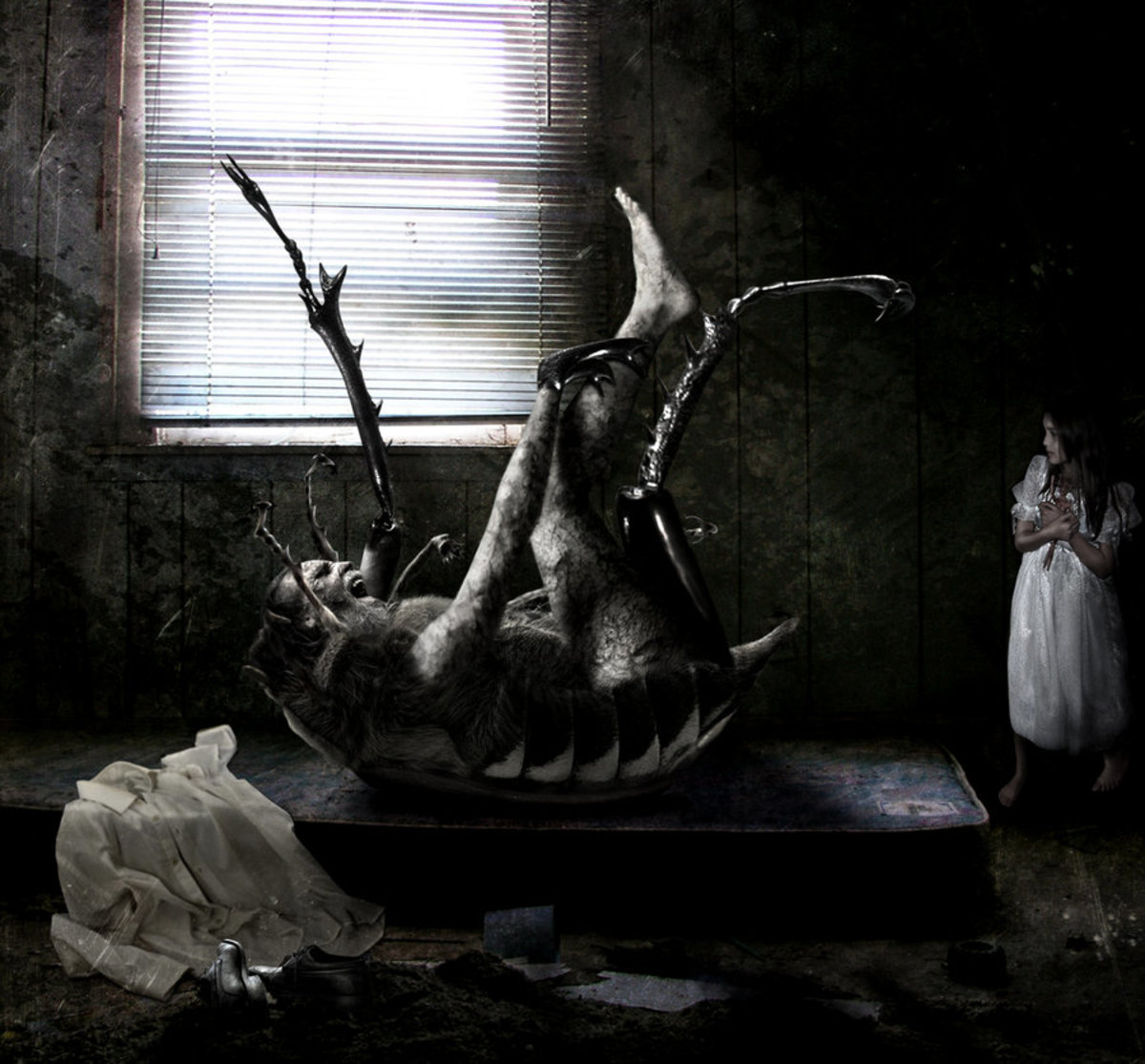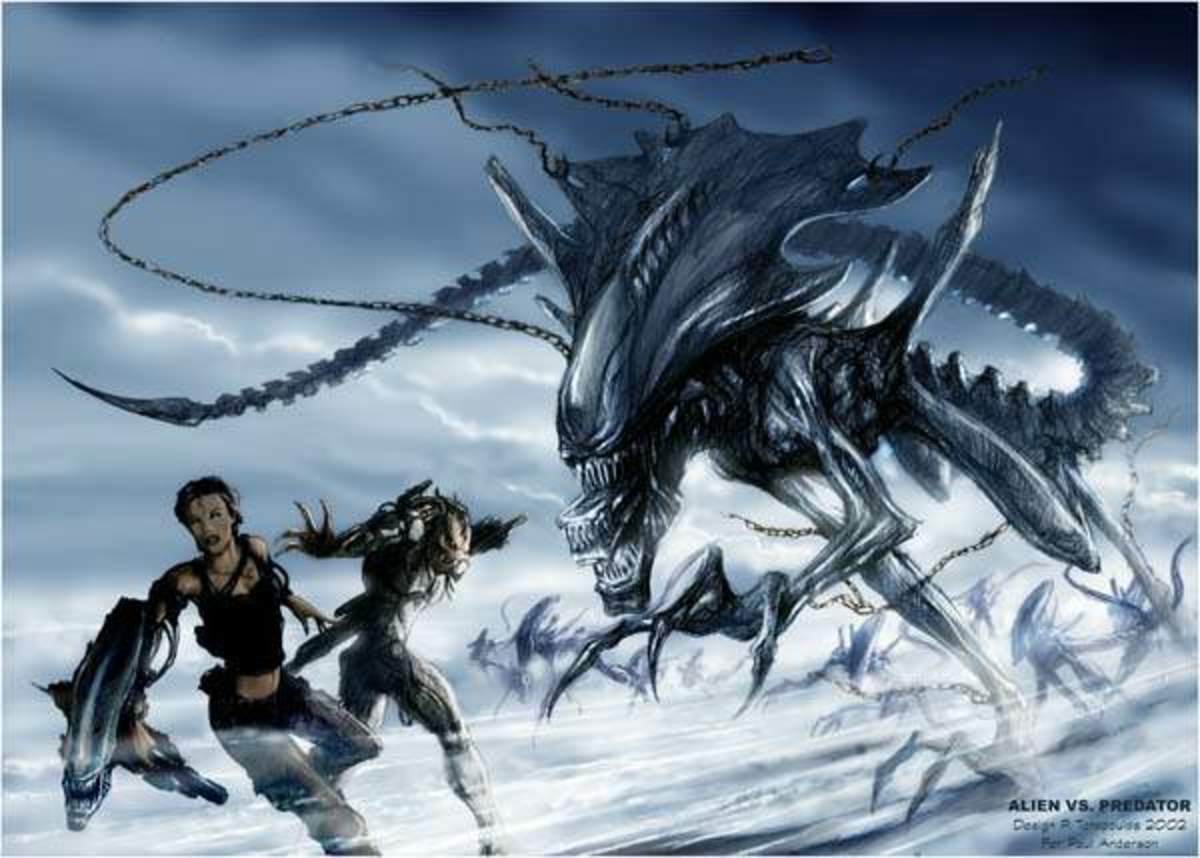Humanity: Where it Begins and Ends

What makes us human? What are the defining factors that separate man from beast? Yes, we may stand upright, are capable of speech, and display a level of knowledge and ingenuity that has elevated us to the top of the food chain, but where exactly does the line fall that distinguishes one from another? Kafka’s “Metamorphosis” is a stepping stone into attempting to reconcile where the divide between us and them, begins and ends.
Gregor, the main character of the story, as well as his family, is faced with his dehumanization and devolvement into a coprophage. And as the story progresses, the question becomes not about how his humanity was lost in the first place, but whether or not his dehumanization began before or was concurrent with his transformation. As the details of Gregor’s circumstances prior to his insect existence are presented by the author, a picture begins to form. After his father’s business fell to ruin, Gregor became a traveling salesman, moved his family into his apartment, and worked to pay off his father’s debt. This creates a parasitic relationship between Gregor and his family, as they come to depend on him for everything, as his father, due to lack of employment, degenerates, succumbing to melancholy and symptoms of age and fatigue. This paradigm reverses on itself when Gregor’s transformation occurs, when he becomes a very literal parasite on his family.
“I thought I knew you for a calm, sensible person, and now suddenly you apparently want to begin making an exhibition of peculiar caprices.” (p17) There are Gregor’s employers, who make great demand of his time, with little regard to the health and well-being of their employees outside of whether or not they within their designated boundaries. Then there’s the fact that Gregor’s occupation is scorned by the general population, regarded as a nuisance as they scurry from one sales opportunity to another, made to feel the brunt of the public’s rejection, annoyance, and possibly feeling of harassment by fellow members of society who are merely trying to make a living. So Gregor is left with a job he can’t stand, a family he barely sees, regarded by the populace as a leech only seeking to drain them of their life blood, and no free time, no social life, and no support. He is no longer thought of as human, and is made into a cog in the machine, which if he breaks, is replaced easily.
The story that this reality most reminded me of was the television show Buffy the Vampire Slayer. At first glance, Buffy Summers is your quintessential all-American, California teenager, with rich parents, snobby friends, and shallow depths to rival most kiddie pools. But when you look into the world she is immersed in, a different image comes to view. She is the Chosen One, a Vampire Slayer, the most recent girl in a long succession, picked an anonymous group of divine powers to battle the creatures of nightmare and myth. “In every generation there is a Chosen One. She alone will stand against the vampires, the demons, and the forces of darkness. She is the Slayer.” This is the opening narration of the series in the beginning, as a way emphasizing the stakes with which Buffy is dealing with.
Those responsible for her training and education are the Watcher’s Council, designated with the responsibility of gathering information on the forces of darkness and destruction, and identifying the girls born with the potential to be Chosen. But the Council expects the Slayer to abide by it rules and edicts to the letter, to carry out her mission of defending the human race, night after night, until her death, which activates the next Slayer. She is to be a weapon, forged solely by their hands, to do with as they wish, with no regard as to the wants and needs of the human being that lies within the warrior that they have created. The Watchers are not responsible for fighting vampires, unless under extreme duress.
Buffy’s metamorphosis comes from her acceptance of her destiny. When we are first introduced, she is resistant to her existence as the Chosen One. She is unwilling to accept that her fate is not in her control. She tries to buck her status, even going so far as to running away from home. As she continues her journey, her defiance of her fate lessens, and though she still struggles with the two lives she must lead, she acquiesces and is able to integrate both of her lives together.
Gregor’s transformation is the physical manifestation of his isolation due to his occupation. Gregor is separated from his family due to time constraints of working; he is removed from society by his job and the general consensus of disrespect and revilement of him and his coworkers. His physical metamorphosis furthers his alienation from the world, cutting off communication outside of him that is understood, and accepted. His form emphasizes his removal from the human condition, leaving him alone with only his thoughts and emotions, as well as severing the ties he has with his family, as they are no longer willing to claim him as part of themselves. And because they no longer claim him, they come to view him as a beast of burden, not worthy of their compassion and protection.
Buffy’s alienation comes from many things. First, is the knowledge that she carries of the true nature of her world, and her lack of ability to share that knowledge indiscriminately. Outside of her Watcher, no one is allowed to know the truth about the malevolent forces at work behind the shadows, and those that might come by that knowledge, usually do so accidentally. She is unable to share with her family the purpose of her actions, which when regarded from an outside perspective without the information of her circumstances, come off as delinquent. Her isolation also comes from her status as the Slayer, and all that that entails. As the Slayer, she is imbued with supernatural strength and speed in order to combat the monsters that wreak havoc on her world. She is the line in the sand between the forces of good and evil. She is not completely human, and yet not counted as one of the monsters. She displays powers few mortals can contend with, and might, should she choose to, consider herself above human law.
Both of these characters are faced with their separation from the rest of the human race, through circumstances not of their own doing, leaving them in positions where they are looked upon unfavorably by their peers. Their attempts to reaffirm their connection to their humanity are successful, to their own detriment. Gregor sacrifices himself in order to end his family’s suffering of being faced with his deplorable circumstances, and enable them to continue their lives without the revilement of his presence, and to be done with his own suffering. Gregor is unwilling to make his family suffer taking care of him, and possibly compromising themselves in order to preserve his existence. Buffy sacrificed herself in order to prevent the destruction of her family, and the world that she holds so dear. Buffy sacrifices her own life in order to prevent her sister’s death, and the possible destruction of her dimension. Both were faced with unenviable situations, and did as best they could to remedy the problem.








